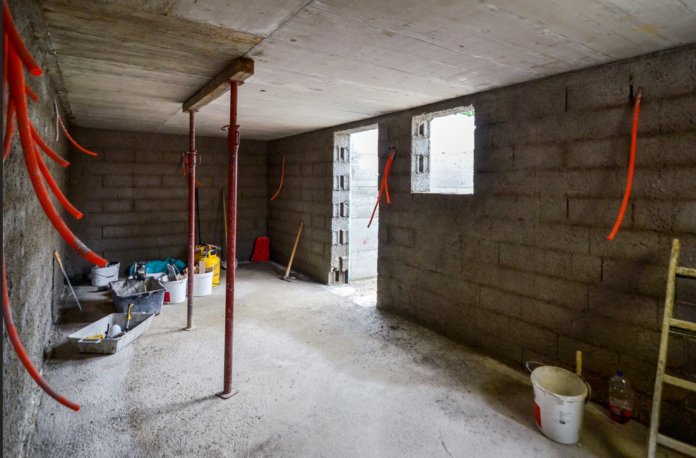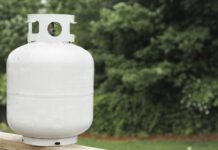Last year, around 10% of homes in the United States were affected by natural disasters that caused significant damage.
Flooding is often the most common damage and most people deal with it in their basements.
If you are worried about moisture in your basement, you’ll need to fix the problem before it gets worse.
Keep reading if you want to know what steps to take when you discover basement leaks in your home!
Locate the Leak
One of the first steps in dealing with basement leaks is to locate them.
Moldy smells, discoloration, and water damage can help you find the leak(s). Turn on all of the lights and grab a flashlight so that you can look in every corner for these signs. Basement leaking signs can be difficult to track, so if you are having trouble, you can call the professionals.
When you find these signs, put a sticky note or other indicators to mark the spot. If you end up hiring a team to help with the leaks, you can walk around with them to ensure that no spots go unnoticed.
Identify Influencing Factors
Does your basement get leaks in the spring after the snow has melted and the ground thaws?
Some people notice that the water increases after rain storms or running the sprinkler systems. Paying attention to these factors can help you determine the next steps to take. Depending on your leaks, you might have to fix the foundation or install gutters to control water movement.
Water leaking into a basement after heavy rain can indicate a few problems, which is why you need to note every detail. Be prepared for the unexpected. For example, some people discover sinkholes next to their basement walls that are holding water.
Make Repairs
If you don’t know how to fix a leaking basement wall, you can call a restoration company.
You may have to fix hydrostatic pressure in basement rooms, otherwise, you can simply fill the cracks. Cement, caulk, and weatherproofing products can get applied to the wall to stop moisture from continuing to enter.
When you have a lot of little leaks going through the walls and floors, paint is a great solution. Weatherproofing paint is durable and will prevent moisture from entering through the walls. Many people recommend using this paint over any repairs that you make to ensure that nothing gets through.
Install Gutters
If you notice the basement leaking after rainfall and you don’t have gutters, you might want to consider getting them.
When the rain quickly comes off of the rooftop, it drops right next to your basement walls. Since the water needs to flow somewhere, it winds up penetrating the walls and damaging your basement.
Installing gutters can help control this problem by rerouting water away from your home. Many people notice an improvement in leaks after they get gutters, just ensure that the spouts are far enough away from your home.
Although gutters can be an expensive investment, they will ultimately increase the value of your home. Not only will your home improve, but you’ll also spend less time mopping and wiping up the water.
Monitor Your Work
Unfortunately, you won’t know if all of your hard work paid off until your walls are put to the test.
The next time you get rain or turn the sprinklers on, pay attention to the basement. For some, it will take some time if you have to wait for another thawing period in the spring. Observing the walls over time can help you spot red flags if your efforts weren’t enough.
As you observe small leaks, you can make adjustments and try to seal the cracks even more. Write down the date and influencing factors if you notice leaks. This information will be useful if you need to get a quote from a basement waterproofing company.
Get Help
Sometimes basements are so difficult to waterproof that you need help from professionals.
Basement waterproofing companies have the knowledge and resources to seal your basement up. This help is often necessary if you live near. a body of water or underground stream. Most businesses will come to your home and provide you with a free quote for their services.
Keep in mind that the cost of your basement waterproofing will depend on how bad the cracks are.
Move Forward
After some time has passed and you haven’t noticed any water leaks or damage, you can move forward.
It’s likely been months or years since you’ve had a finished basement that is comfortable to use. Adding drywall can help ensure water doesn’t ruin your decor and it also gives you a blank canvas to paint. If water isn’t leaking through the floors, you can also add carpet or wood.
If you want to use your basement for storage, it’s helpful to install shelving. Just as a safety measure, you should keep your items off of the floor and away from the walls. As you gain more confidence in your waterproofing, you can decorate and make the place yours.
Don’t Let Basement Leaks Grow
Basement leaks can fluctuate and be under control one moment, then flood your rooms the next.
If you find any signs of leaks, like water damage and mold, you need to address the problem immediately. Sealing these cracks and applying weatherproofing paint can keep the water out.
Depending on the factors you are dealing with, however, you might need to consider investing in gutters. Don’t be afraid to contact a professional team if the leaks are too difficult to manage.
Make sure you read our blog for more content about home improvement projects and repairs!










